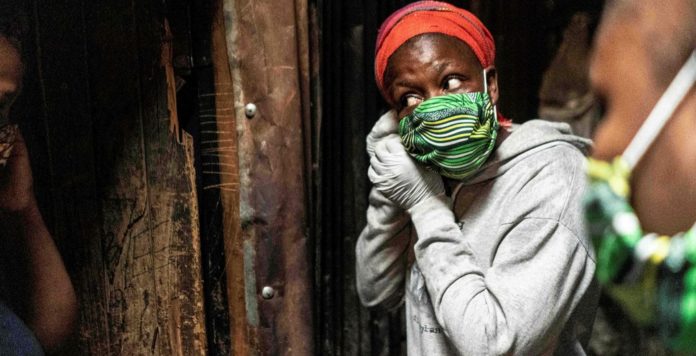
GOLD Fields reported 73 positive cases of the COVID-19 disease at its African assets, including a single case at South Deep, west of Johannesburg, but there was no change to the adjusted guidance of April 23 which put gold production at between 2.2 to 2.25 million ounces for 2020 financial year.
Of the 73 positive cases, 70 were recorded at the Tarkwa mine in Ghana of which 90% were contractors. Gold Fields said the majority of these cases were identified after contact tracing of the first two cases at the mine.
So far, Tarkwa has tested 1,600 employees and contractors of a total workforce of 4,770 souls, the company said. Asanko and Damang mines, also in Ghana, had reported a single case each whilst South Deep, which is gearing up for a return to 100% production from June 1, was quarantining high risk and returning employees off-site before allowing them access to the mining area.
Gold Fields said it planned to test every South Deep employee on this basis over the next six weeks beginning with higher risk employees.
Cases of COVID-19 have also been identified at the firm’s operations in Peru and Australia, the latter being the least affected by the pandemic so far.
Nick Holland, CEO of Gold Fields, said the company was financially secure to withstand the effects of the pandemic, but the company said earlier in its public statement today that further lockdowns might have a bearing on future gold production.
“We have sufficient liquidity to withstand an interruption in our operations for a a considerable period of time, but will nevertheless will work towards minimising the impact of COVID-19 on our operations,” said Holland.
“We will review the situation at regular intervals to decide on further actions if required and will keep the market updated accordingly,” he said. The group had $800m in cash and more than $1.5bn of committed un-utilised debt facilities.
Holland said in an opinion piece that the COVID-19 represented an opportunity to establish stronger relationships with the company’s stakeholders, including unions – the cooperation with which was crucial in containing the effects of the virus.
“With Covid-19 threatening the livelihood of workers and the tax income of governments we have found more common ground with these stakeholders,” he said.
Holland also anticipated acceleration of existing new trends in mining such as the digitalisation of mining processes.
“In terms of technology, the Covid-19 crisis will undoubtedly help to accelerate mechanisation, automation and digitisation of the mining industry,” he said. “We see a faster adoption and implementation of data-enabled machinery and devices in the sector.”
“These technological changes will require a new skills set among our workforce. Where possible we will retrain our employees to work in these new environments, but in the long-term it will undoubtedly lead to lower staffing level at most mines,” he said.








